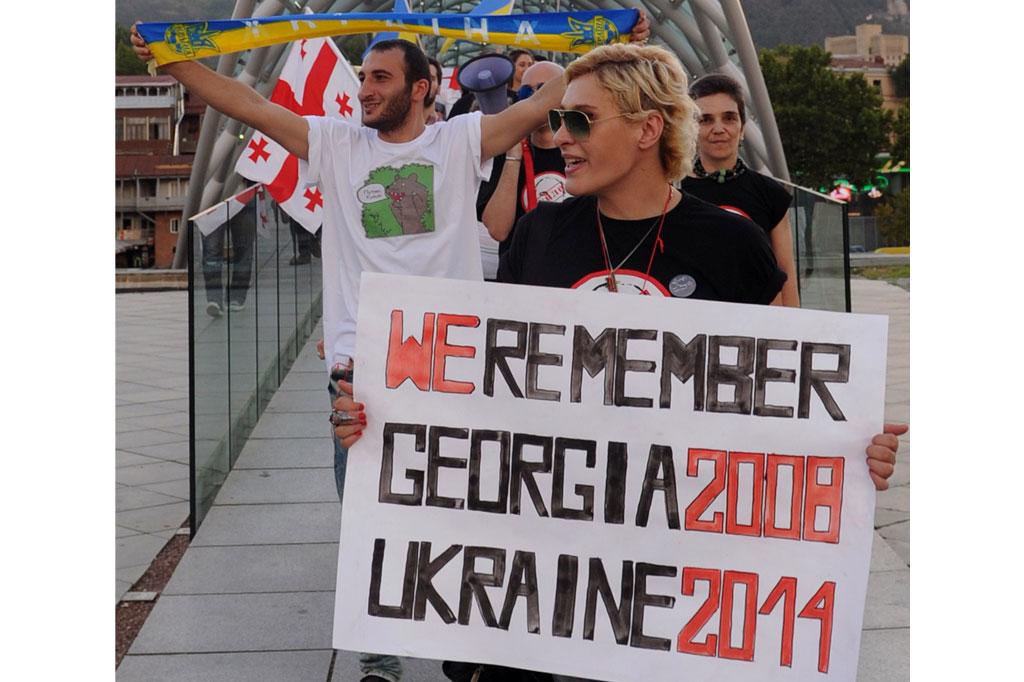Georgia’s response to the Ukraine crisis has been less strident than some of Russia’s other neighbours. In part this is because many Georgians view the 2008 Russo-Georgian war as the first expression of renewed Russian expansionism, which makes them wary of taking too provocative a position.
Nonetheless, the Ukrainian crisis has had several direct effects on the Georgian political conversation, both on domestic and international fronts. These responses centre on Georgia’s aspirations to join the western club. Though President Giorgi Margvelashvili recently confirmed that the country is still pursuing membership in the EU and NATO, the country’s split on how much to tilt towards the West parallels the domestic fault lines inside Georgia – the ruling Georgian Dream (GD) coalition on one side and the opposition United National Movement (UNM) on the other. It was founded by 2003 Rose Revolution leader Mikheil Saakashvili.
Restrained Criticism
The Georgian Dream, created by billionaire Bidzina Ivanishvili and now led by the prime minister, Irakli Garibashvili, maintains an official stance of cautious support for the Ukrainian government. While the West has initiated sanctions against Russian assets, the Georgians are in no such position of power. Economic relations between Georgia and Russia were severed following the 2008 war and have only recently experienced some restoration.
Likewise, since 2008 Russia and Georgia have not maintained direct diplomatic ties with one another, although both have indirect conduits. Georgia’s official statements reflect the cautious stance of the current ruling party. A statement issued by the Georgian parliament expressed its “extreme concern” and linked the violence in Ukraine to the pro-Western stances of Ukraine and Georgia.
However, the Georgian leadership in Tbilisi also tempered this by saying it would avoid making “radical statements”, due to its “pragmatic policy”. In general, any current Georgian antagonism toward Russia derives more from wounds it sustained in 2008 rather than neighbourly solidarity with Ukraine.
Parallels With 2008
Georgia’s official pragmatic rhetoric riled the members of the UNM, who demanded a stronger response. Mikheil Saakashvili, who stepped down as president last year, argues that Russia’s annexation of Crimea and its role in destabilising eastern Ukraine illustrate Russia’s ongoing foreign policy. Saakashvili argues that the Georgians were the first victims of Putin’s policy of naked aggression when the Russian military entered Georgian territory in 2008 to intervene in a long-standing territorial crisis in the breakaway region of South Ossetia.
Russian policymakers framed their incursion in South Ossetia as a humanitarian act to protect citizens there from Georgian violence. South Ossetia had fought in 1992 for independence from Georgia, although the two sides had never reached a political settlement.
During the 2008 war Russia also intervened in Abkhazia, which subsequently expelled soldiers in a Georgian military base in the Georgian-held Kodori Gorge. The South Ossetians and Abkhazians both had reasons for political grievances with the Georgian state, but the Georgian leadership continually emphasises the role of Russia in escalating and aiding the secessionist rhetoric and activity in both regions.

